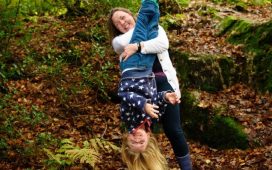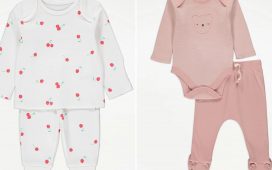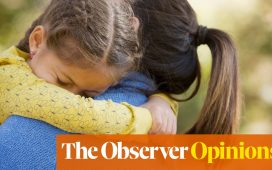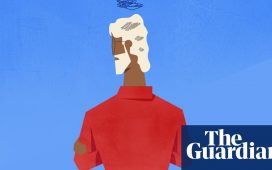When I was 17, my periods still hadn’t started. Blood tests and ultrasound scans confirmed the devastating news: I had Mayer-Rokitansky-Küster-Hauser (MRKH) syndrome – I had been born without a uterus. One in 5,000 women have the condition. I had functioning ovaries, which could help me make a baby, but without a womb, I couldn’t carry one.
I stared at the medical drapes in front of me and tried to keep breathing. “Couldn’t I have a uterus transplant?” I asked the doctor, only to be told that I’d be lucky to see the procedure developed in my lifetime.
The shame at my diagnosis was overwhelming. I felt broken and kept it a secret from almost everyone. For years I started relationships that were never going to last. By 22, I’d found some peace. In 2006, I met a loving man who knew about my condition from the outset; we married three years later.
I desperately wanted to be a mother, but our attempts at surrogacy and adoption failed. The relentless stress of infertility contributed to the end of our marriage.
But I hadn’t given up hope. In 2014, I read about the world’s first successful uterus transplant in Sweden. The following year, a friend called to tell me that a clinic in Cleveland, Ohio, was running the first American trial into the procedure. It would involve putting an embryo in the new uterus with the hope of creating a pregnancy.
I brushed the idea off at first: there were only going to be 10 participants, and I knew many deserving women would be trying to join. Cleveland was also miles away from where I was living, in Arizona. Then, a week later, I woke up and thought, “What do I have to lose?”
When the clinic called to give me more information, I started shaking. I’d never been more excited. But I knew that even if I was lucky enough to be chosen, the process would be long and unpredictable. First, an embryo would have to be created through in vitro fertilisation using my eggs. As I was single, I would have to use donor sperm.
Quick Guide
Saturday magazine
Show

This article comes from Saturday, the new print magazine from the Guardian which combines the best features, culture, lifestyle and travel writing in one beautiful package. Available now in the UK and ROI.
The embryos would then be frozen, while I waited for a uterus match from a deceased donor. If a suitable one was found and the operation successful, I would then have the embryo implanted.
Still, I was determined to try. But as I was about to start the IVF, an infection caused a failed transplant in another trial participant, and the study was put on hold indefinitely. Also, at that time, my mother was diagnosed with cancer – everything felt as if it was falling apart.
That was when John, one of my oldest friends, became my rock. He took me out for lunch and listened to me. In January 2017, we admitted how we felt and were engaged by June. The delayed IVF became a blessing. John and I created our embryos a year later, just before our wedding. Now all I needed was a donor.
My mum’s cancer had been improving, but in 2019, it returned, and she was slipping in and out of consciousness. Last January, she woke and told me she’d met my daughter in her dream. She said she was called Grace and looked just like me.
A week later the call came: I had a match. I was so grateful to the donor and her family. I knew what it was like to lose a loved one – my mum died eight days later.
A month after the operation, aged 36, I had my first period. I was in awe at what the human body could do. That feeling only grew five months later when my embryo was implanted. I took a pregnancy test and saw the second line, indicating a positive result. It didn’t feel real.
In March this year, Grace was born. When the doctor held her up, I just grabbed her; I couldn’t wait another second. Finally holding my daughter was more magical than I’d ever dreamed it would be.
As I watch her today, all gummy smiles and blowing raspberries, I think back to that 17-year-old girl at the doctor’s office, and the devastation she felt. Now, there is joy. And that’s what the Cleveland clinic, my organ donor and her family did for me. I’ll be grateful to them all for ever.
As told to Kate Graham
Do you have an experience to share? Email experience@theguardian.com














